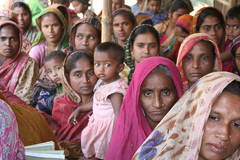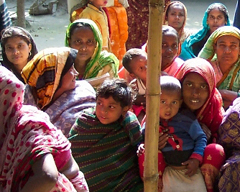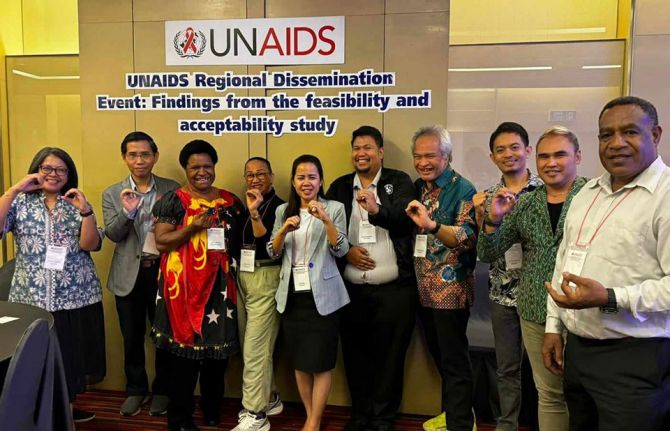
Feature Story
Grameenphone telecommunications joins forces with UNAIDS
01 June 2007
01 June 2007 01 June 2007
Bangladesh ’s leading telecommunications service provider, Grameenphone Ltd has joined forces with UNAIDS to drive forward advocacy and awareness raising on AIDS issues, as part of the work of the Asia Pacific Leadership Forum on AIDS (APLF) in Bangladesh.
At a ceremony held in Dhaka on 24 May 2007, Managing Director of Gameenphone Erik Aas and UNAIDS Director for Regional Support Team Prasada Rao signed a statement of cooperation that will see the telecommunications giant support UNAIDS in their APLF work to engage high-level leaders from different sectors of the country, including governance, business, media and women in helping create an enabling environment in support of action on AIDS. A major focus of the agreement between UANIDS and Grameenphone is to work together to ensure media coverage for the leaders. Grameenphone will provide necessary support to execute the mutually agreed upon media campaigns.
Speaking at the signing ceremony, Erik Aas said that with Grameenphone’s network of more than 10 million subscribers across the country, the company is in an ideal situation to conduct wide reaching HIV awareness campaigns. "Utilising our infrastructure and employees, I expect that we will succeed," he said.
In Bangladesh, six leaders are already ambassadors of the APLF initiative. Major General (retd) ASM Matiur Rahman, Adviser of Ministries of Health and Family Welfare, Water Resources and Religious Affairs, Runa Laila and Alamgir, cultural personalities, Shykh Seraj, media personality and agriculture development expert, Bibi Russell, fashion icon and activist and Kafil HS Muyeed, Director, New Business Division, Grameenphone Ltd. All attended the event that saw UNAIDS and Grameenphone come together on the issue of AIDS.

“We hope this will encourage thousands of businesses in the country to come forward to address the major threats relating to health, education and poverty alleviation as part of their corporate social responsibility,” said Major General (retd) ASM Matiur Rahman. “AIDS is a global problem, and a reality in Bangladesh. There is no alternative to taking preventive measures – particularly focusing on young people who are at high risk,” he added and stressed the need for a combined effort of all religious minded people from mosques, temples and pagodas.
“Leaders are distinguished by their action, innovation and vision; their personal example and engagement of others; and their perseverance in the face of obstacles and challenges,” said UNAIDS’ Prasada Rao. “Leadership must be demonstrated at every level to get ahead of the epidemic- in families, in communities, in countries and internationally. We welcome working together with Grameenphone Ltd to push forward the AIDS response in Bangladesh.”
The APLF was established in 2002 in response to the commitment for strong leadership on AIDS agreed at the first United Nations General Assembly Special Session on AIDS (UNGASS) in New York in July 2001. Managed by UNAIDS, APLF supports and strengthens political and civil society leadership at country, sub-regional and regional levels to take action to reduce the spread and impact of the AIDS epidemic in the Asia Pacific region.
The first case of HIV in Bangladesh was detected in 1989. According to a 2004 UN study, HIV infections have tripled in the last six years. UNAIDS estimated that 13,000 adults and children were living with HIV at the end of 2002 in Bangladesh.
Links:
More information on Bangladesh



